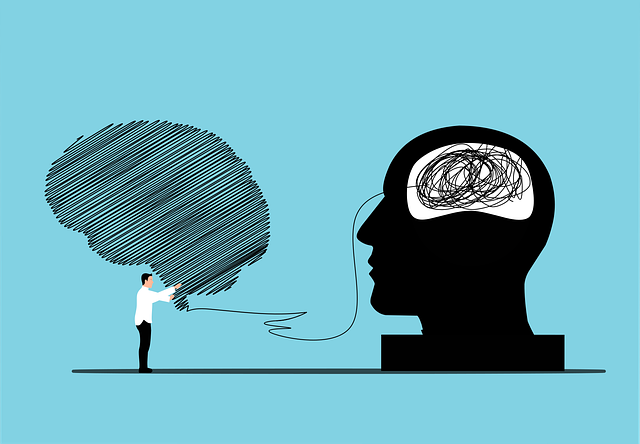Integrative health is a comprehensive approach that combines body therapies like massage, acupuncture, and exercise with mind therapies including cognitive-behavioral therapy (CBT), meditation, and mindfulness to promote overall wellness. Body therapies address physical ailments, reduce stress, and facilitate healing by directly affecting physiological processes, while mind therapies contribute to mental clarity, emotional balance, and psychological resilience, which can improve sleep quality and reduce anxiety levels. The synergy between these two types of therapies is key; they work together more effectively than when used separately, highlighting the interdependence of physical and mental health. Integrative psychotherapy further supports this by integrating both body and mind therapy techniques to help individuals recognize and release bodily tension linked to emotional experiences, fostering a deeper connection with their physical selves and leading to better mental clarity, emotional regulation, and overall well-being. Complementary body therapies with roots in ancient healing traditions, such as massage, osteopathy, chiropractic care, Reiki, and acupuncture, are emphasized for restoring balance and enhancing vitality by addressing the mind-body connection. Additionally, practices like yoga and tai chi blend physical movements with breathwork and meditation, contributing to both physical health and mental clarity. Research supports the combined effectiveness of these therapies, suggesting that they can lead to improved well-being and enduring outcomes when tailored to individual needs. This holistic approach to healthcare is transformative, offering a personalized strategy that targets underlying issues for lasting health benefits.
Embark on a transformative journey into the realm of holistic health with our comprehensive exploration of professional support for mind-body wellness. This article delves into the interconnectedness of body therapy and mind therapy, revealing how they work in tandem to restore balance and enhance overall well-being. From the role of psychotherapy in fostering mental harmony to the benefits of complementary body therapies, each section offers valuable insights into achieving a holistic approach to health. Discover how integrative approaches can be personalized with professional guidance to tailor your wellness journey uniquely to you. Join us as we unravel the synergistic effects of mind and body practices for an improved quality of life.
- Understanding the Synergy Between Mind and Body Therapies
- The Role of Psychotherapy in Cultivating Mind-Body Wellness
- Exploring Complementary Body Therapies for Holistic Health
- Integrative Approaches: Combining Mind and Body Practices for Enhanced Well-Being
- Personalizing Your Mind-Body Wellness Journey with Professional Support
Understanding the Synergy Between Mind and Body Therapies

The concept of integrative health recognizes the profound synergy between mind and body therapies. Body therapies, such as massage therapy, acupuncture, and physical exercise, directly address physiological needs and stress responses, promoting relaxation and enhancing physical well-being. These interventions can alleviate pain, improve circulation, and support the body’s natural healing processes. In tandem, mind therapies like cognitive-behavioral therapy (CBT), meditation, and mindfulness practices focus on mental clarity, emotional balance, and psychological resilience. By cultivating a state of calm and awareness, these techniques can reduce anxiety, improve sleep quality, and contribute to an overall sense of mental tranquility. The interplay between body therapy and mind therapy is not merely additive but synergistic; when combined, they create a holistic approach that can address both acute and chronic health issues more effectively than either modality alone. This comprehensive approach acknowledges that the well-being of one directly influences the well-being of the other, making the integration of both essential for a balanced and healthy lifestyle.
The Role of Psychotherapy in Cultivating Mind-Body Wellness

Integrative psychotherapy plays a pivotal role in the realm of mind-body wellness, often incorporating body therapies to address psychological distress. This holistic approach recognizes the interconnectedness of mental and physical health, and through techniques such as somatic experiencing and biofeedback, individuals can learn to recognize and release tension patterns held within the body that may be linked to emotional experiences. By doing so, psychotherapy helps clients to foster a deeper connection with their bodies, leading to improved mental clarity, emotional regulation, and overall well-being.
In the journey towards mind-body harmony, the therapeutic alliance is crucial. It provides a safe space for individuals to explore how their thoughts and emotions manifest physically. Body therapies within psychotherapy sessions can help clients to gently observe and alter somatic symptoms, reducing the negative impact of stress and trauma on both mental and physical health. This transformative process not only alleviates suffering but also empowers individuals with strategies to sustain mind-body wellness beyond the therapy room, promoting a more balanced and resilient way of living.
Exploring Complementary Body Therapies for Holistic Health

Integrative health practices recognize the profound impact of complementary body therapies on overall well-being. These therapies, often rooted in ancient traditions, are designed to promote a harmonious balance between the physical and mental aspects of an individual’s being. For instance, massage therapy, through techniques such as Swedish or deep tissue massage, can alleviate muscular tension, enhance circulation, and facilitate mental relaxation, thereby contributing to a more holistic health experience. Similarly, bodywork therapies like osteopathy or chiropractic care focus on the body’s structure and function, aiming to identify and correct imbalances that may be affecting not just physical comfort but also emotional health. By addressing the mind-body connection, these therapies can offer a multifaceted approach to wellness that extends beyond conventional medical treatments, offering individuals a pathway to enhanced vitality and tranquility.
In the realm of complementary therapies, energy healing practices such as Reiki or acupuncture are also gaining recognition for their role in mind-body wellness. These modalities work on the premise that an individual’s life energy must be in balance for optimal health. Reiki, a gentle touch therapy, channels this energy to facilitate relaxation and healing at deeper levels of consciousness, while acupuncture stimulates specific points on the body to restore the flow of qi or vital energy. Both therapies are grounded in the belief that when physical and mental harmony is achieved, the body’s innate healing abilities can more effectively address underlying health concerns. These holistic approaches underscore the importance of a comprehensive mind-body therapy regimen for achieving lasting health and wellness.
Integrative Approaches: Combining Mind and Body Practices for Enhanced Well-Being

Integrative approaches to wellness are gaining traction as individuals seek comprehensive solutions that address both mental and physical health simultaneously. These holistic practices often incorporate body therapy and mind therapy, recognizing the interconnected nature of these systems. For instance, modalities like massage therapy can alleviate physical tension, thereby reducing stress levels and promoting a calming effect on the mind. Similarly, techniques such as yoga and tai chi integrate physical postures with breathwork and meditation, fostering an environment where the body and mind can achieve balance and harmony. These practices not only enhance physical health by improving flexibility, strength, and immunity but also contribute to mental clarity, emotional resilience, and a heightened sense of self-awareness.
The integration of body therapy and mind therapy within wellness programs is supported by a growing body of research that underscores their combined efficacy. For example, cognitive-behavioral techniques often used in psychotherapy can be complemented by somatic therapies, which focus on the mind’s influence over bodily functions and sensations. This synergy allows for a more nuanced approach to treatment, one that considers the whole person rather than isolated components. As a result, individuals may experience improved well-being, with outcomes that are often more profound and lasting than those achieved by addressing either the mind or body in isolation. These integrated therapies offer a personalized pathway to health, tailored to the unique needs of each individual, thereby enhancing overall well-being and quality of life.
Personalizing Your Mind-Body Wellness Journey with Professional Support

Embarking on a journey towards mind-body wellness is a deeply personal endeavor that can greatly benefit from professional guidance. Tailored body therapies, such as massage, yoga therapy, or acupuncture, are designed to address the physical manifestations of stress and tension, promoting relaxation and healing. In conjunction with these treatments, mind therapies like cognitive-behavioral techniques, meditation, and psychotherapy help to cultivate mental resilience and emotional balance. By integrating both modalities, individuals can experience a more holistic approach to wellness that addresses the root causes of wellness imbalances rather than merely treating symptoms. Engaging with professionals who specialize in body therapy and mind therapy allows for a customized plan that aligns with one’s unique needs and goals, fostering a supportive environment for sustainable health and vitality.
In concluding our exploration into the realm of holistic health, it’s evident that a harmonious approach to mind-body wellness, informed by both mind and body therapies, holds significant promise for enhanced overall well-being. The integration of psychotherapy with complementary body therapies not only addresses the interconnected nature of mental and physical health but also paves the way for personalized care tailored to individual needs. Professional support in this domain is instrumental in guiding individuals toward a balanced state, where mind therapy and body therapy synergize to promote healing and growth. As such, embracing these practices can lead to a more fulfilling and resilient life, underscoring the importance of a comprehensive approach to health that respects the individual’s unique journey towards wellness.
